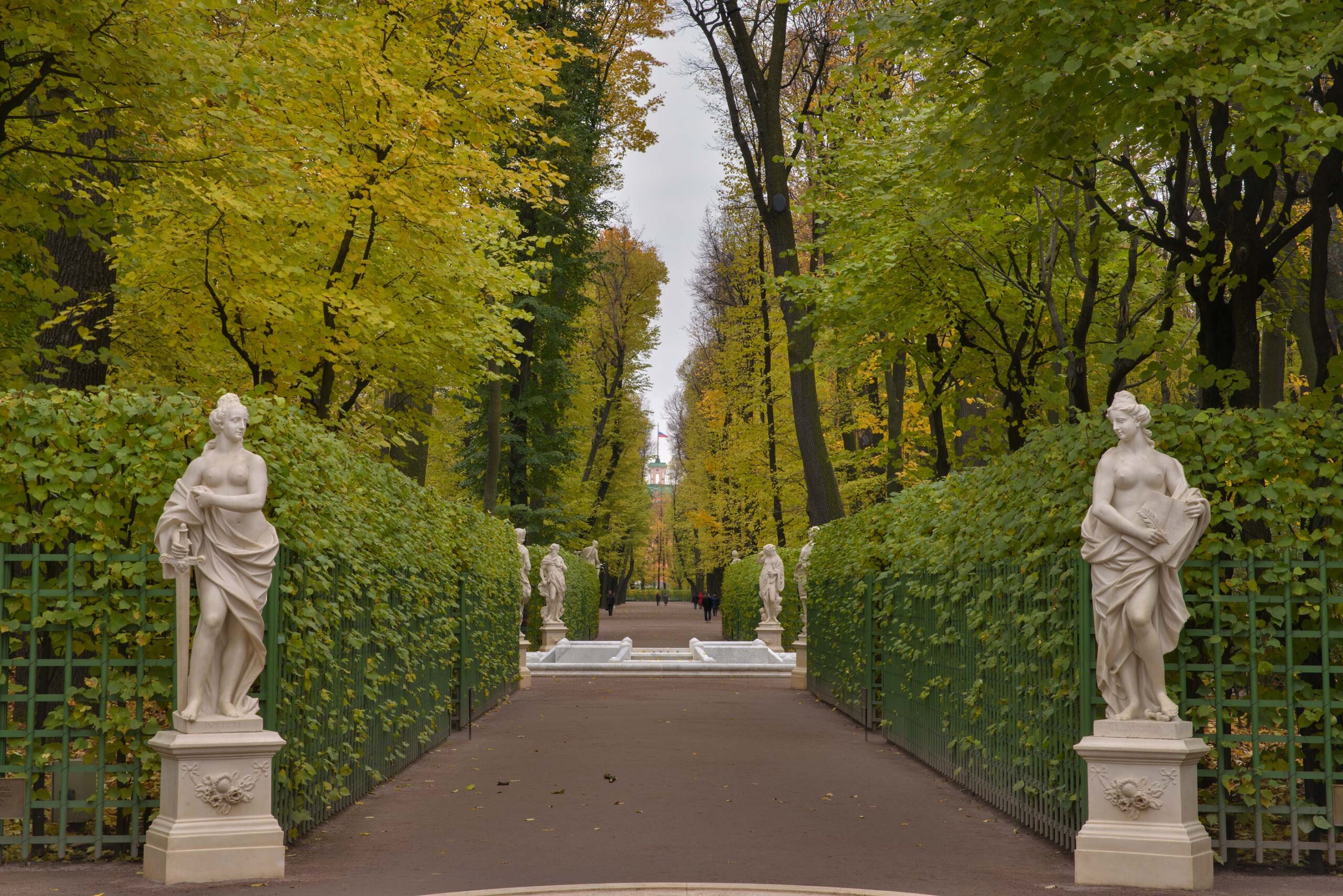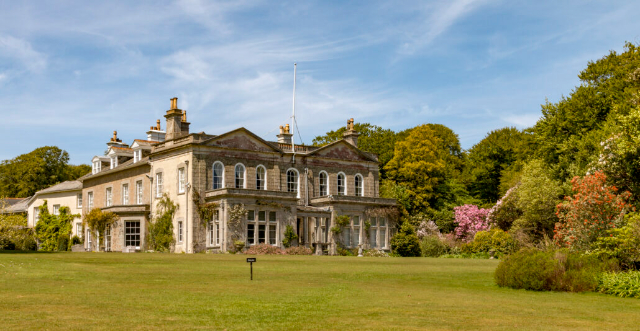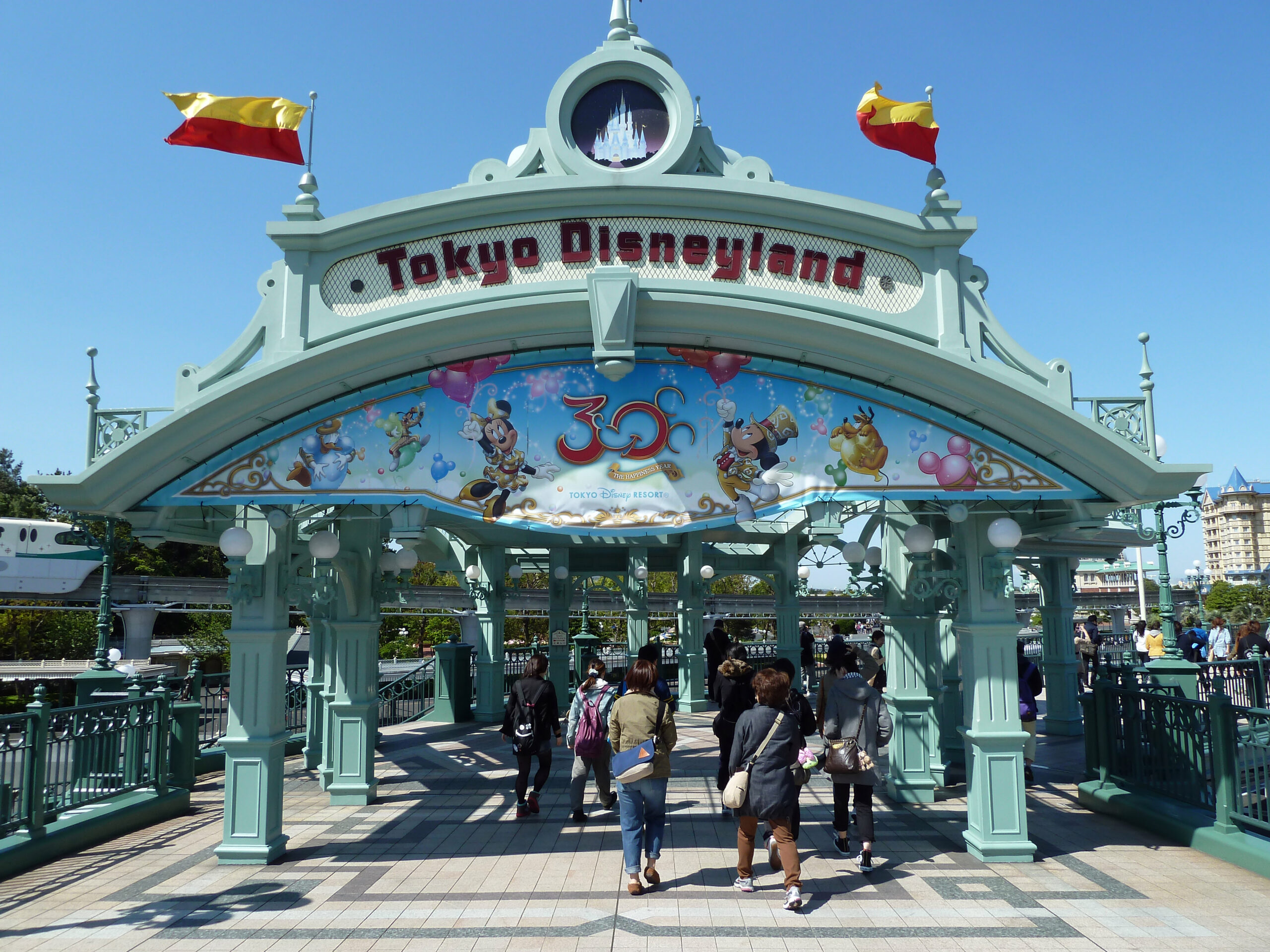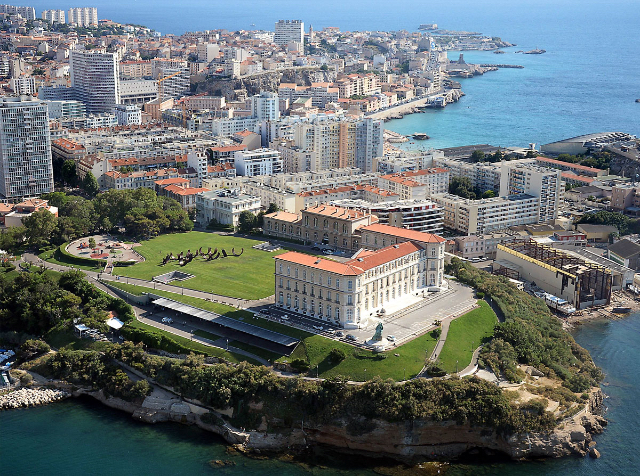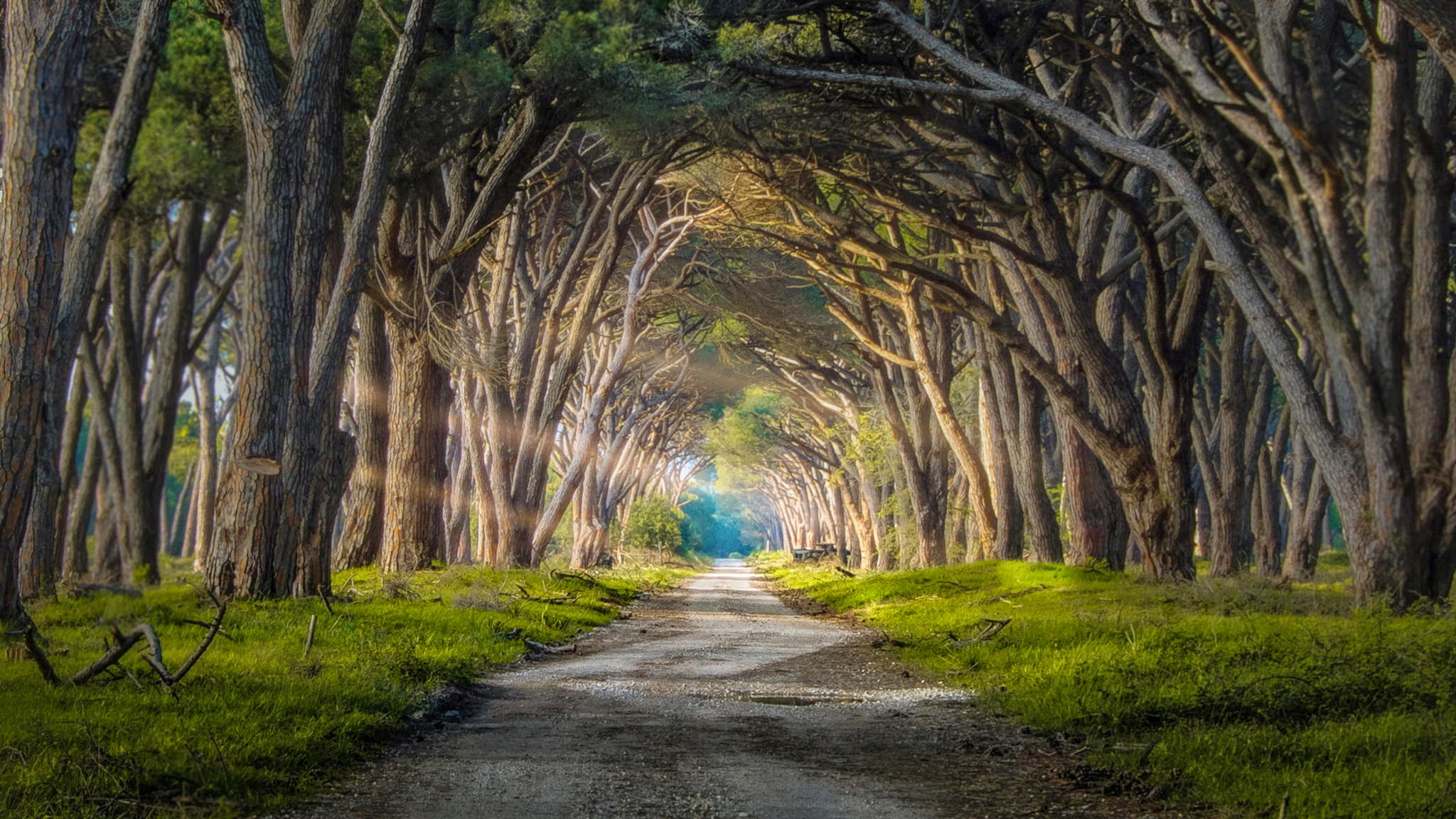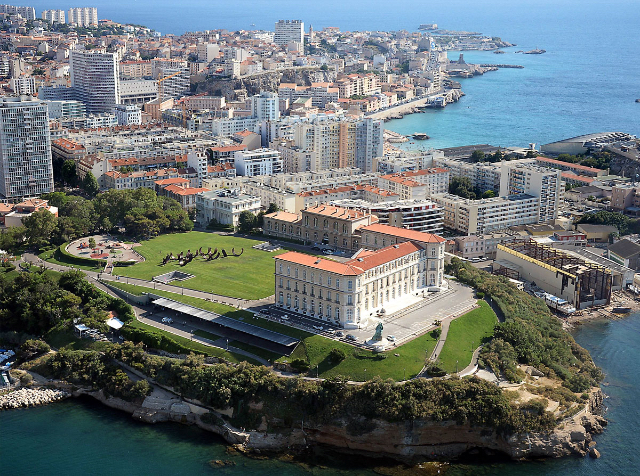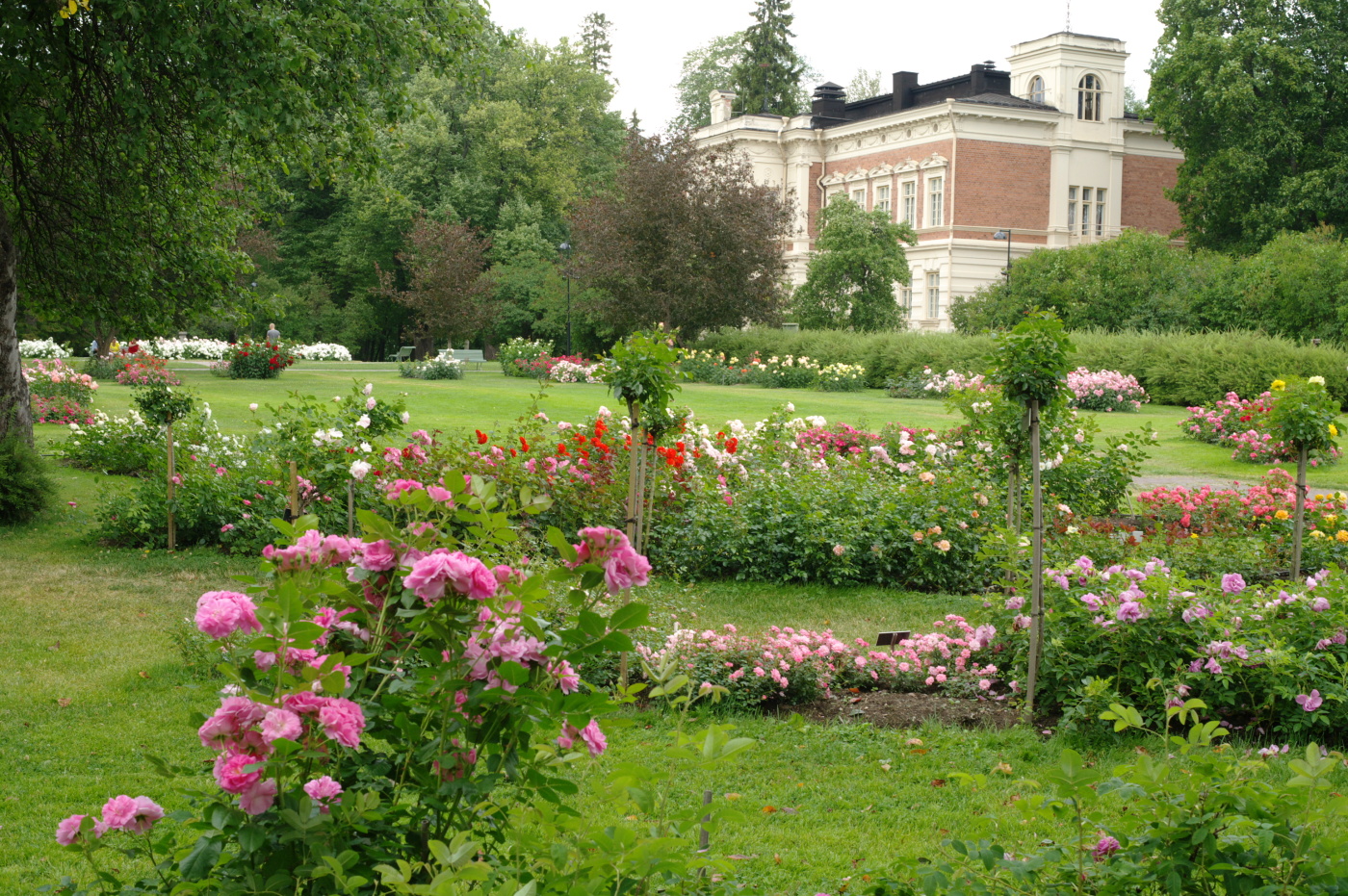The Summer Garden is located where the Fontanka River flows out of the Neva River. It was founded in 1704 by order of Peter the Great, who was personally involved in planning it, and is laid out according to strict geometrical principles. The Summer Garden is home to marble statues acquired from Europe especially for Russia’s new capital, and also to rare flowers and plants, as well as fountains. It was a traditional location for courtly life outside the palace, and balls were held here by the nobility, who also enjoyed simply taking the air in the Garden.The Summer Garden is also the location of Peter the Great’s first Summer Palace, built by the great Italian architect Domenico Trezzini and still there today. This Summer Palace – a two-storey Dutch-style affair with a high roof and comparatively modest interior – was one of St. Petersburg’s first stone palaces. Its original interiors have been preserve to this day.
In 1777 the Summer Garden was severely damaged by flooding: Several statues were destroyed and fountains broken. However, it was soon restored to its original regular plan. Today its avenues are adorned by 79 sculptures by Italian sculptors of the 17th and 18th centuries, including Boratta, Bozzazza, and many others – the oldest collection of garden statues in Russia. And the selection of mythological themes in the statues is no accident, as the images of the gods and heroes of Antiquity reflected the ideas underpinning Peter’s state and transforming activity.The Neva River end of the Summer Garden is bounded by a fence designed by the architect Yury Felten in 1773-1786. The Garden is also home to a Coffee House (designed by Carlo Rossi) and a Tea House (designed by Ludwig Charlemagne); in front of the latter is a statue of the great Russian fabulist Ilya Krylov by the sculptor Pyotr Klodt. The base of the monument is decorated by a bas relief based on themes from Krylov’s tales.
